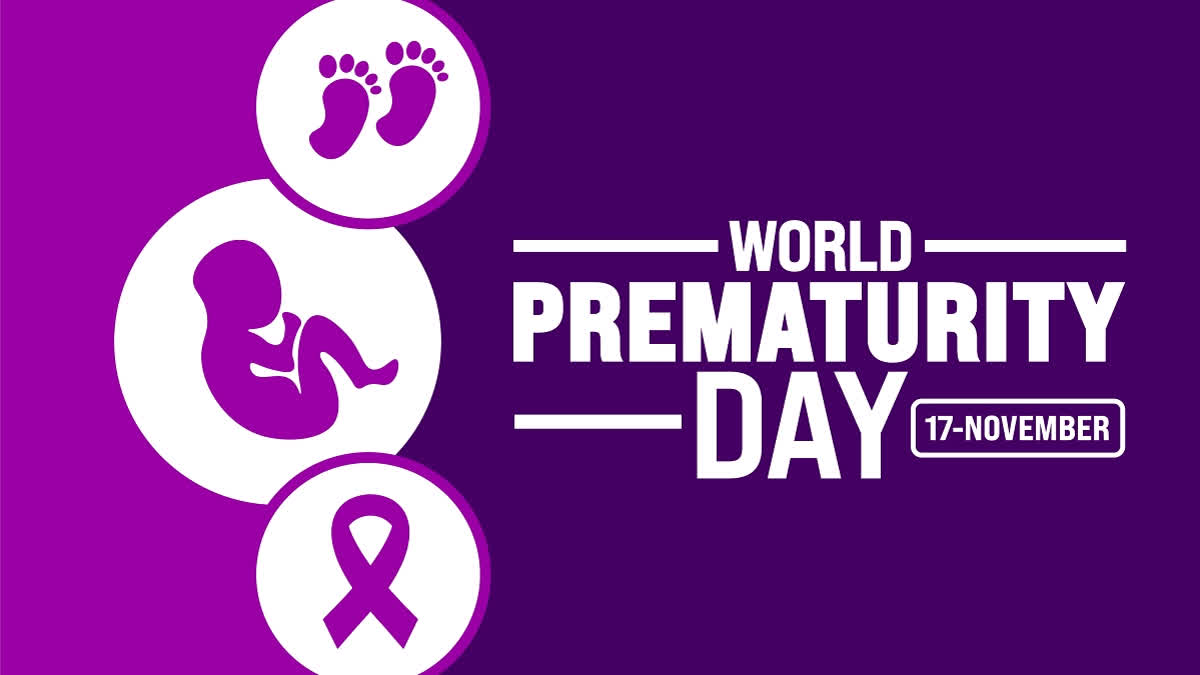World Prematurity Day, observed annually on November 17, raises global awareness of the challenges for women and babies associated with preterm birth, and celebrates the lives of preterm infants. Preterm birth is a leading cause of death among children under five, with an estimated 15 million babies (one in ten) born prematurely worldwide every year.
Theme:
"Over 13 million babies born too soon every year, Access to quality care everywhere!"
The theme raises awareness about the challenges and risks associated with preterm birth (babies born less than 37 weeks gestation), which is a leading cause of death among children under five years old and the number one cause of childhood disability. It highlights the urgent need for better healthcare, policies, and support systems for premature babies and their families.
History:
In 1997, Silke Mader, expecting twins, faced challenges when they were born prematurely. Recognizing gaps in premature baby care, she cofounded EFCNI in 2008. Collaborating with experts, including PD Dr Matthias Keller and Thomas Föringer, they aimed to improve preterm baby care. They initiated World Prematurity Day in 2009, now a global event, uniting countries to support preterm babies and families.
Importance of World Prematurity Day
Prematurity, common for babies born before 37 weeks, leads to high newborn mortality. Infection, deformity, and respiratory failure are the main causes of death for premature babies under 1000 g. Preterm birth, mostly natural, can also be due to medical issues. In 2020, 1.34 crore babies were born prematurely, resulting in roughly 10 lakh deaths. Preterm birth accounts for one in ten newborns globally. It's a leading cause of infant mortality and may lead to long-term health issues. World Prematurity Day aims to raise awareness and prevent preterm birth.
What is preterm birth?
Preterm births are babies born before 37 weeks of pregnancy. Based on gestational age, there are sub-categories of preterm birth:
- Extremely preterm (less than 28 weeks)
- Very preterm (between 28 and 32 weeks)
- Moderate to late preterm (between 32 and 37 weeks)
According to the WHO 2023 report, An estimated 13.4 million babies were born too early in 2020. That is more than 1 in 10 babies. Approximately 900,000 children die in 2019 of complications of preterm birth. Many survivors face a lifetime of disability, including learning disabilities and visual and hearing problems.
According to a study published in The Lancet Journal, Over 50% of all preterm births in 2020 occurred in just eight countries and areas, the same top eight countries and areas as in 2010 with slight variations in the ranking of each country at the two time points. India had the highest total number of preterm births in 2020 (3·02 million) and accounted for over 20% of all preterm births worldwide followed by Pakistan, Nigeria, China, Ethiopia, Bangladesh, the Democratic Republic of the Congo, and the USA.
The high numbers of preterm births in these countries and areas are, in part, a reflection of their large population sizes, high numbers of total births, and weaker health systems that are unable to deliver high-quality family planning, antenatal care, and childbirth services to all individuals who need them.
Why does preterm birth happen?
Preterm birth occurs for a variety of reasons. Most preterm births happen spontaneously, but some are due to medical reasons such as infections, or other pregnancy complications that require early induction of labour or caesarean birth.
More research is needed to determine the causes and mechanisms of preterm birth. Causes include multiple pregnancies, infections and chronic conditions such as diabetes and high blood pressure; however, often no cause is identified. There could also be a genetic influence.
Preventive steps for preterm birth:
The following are the preventive measures to avoid preterm birth that include:
- Taking regular prenatal care
- Maintaining healthy lifestyle
- Managing chronic conditions
- Avoiding stress
- knowing warning signs



